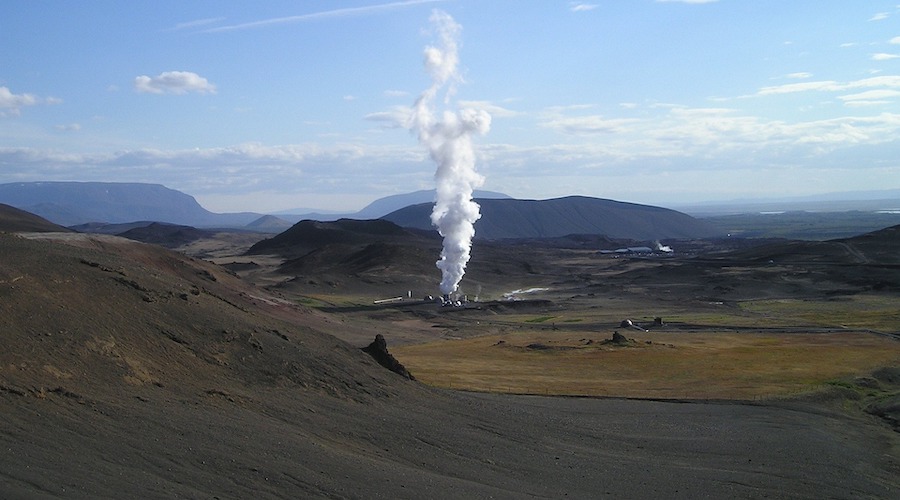Policies Matter: Volkswagen, Mercedes, & Hyundai React To Inflation Reduction Act

Most members of Congress haven’t even read all 700+ pages of the recently passed Inflation Reduction Act yet, but major corporations like Volkswagen, Mercedes, and Hyundai certainly have. And what they discovered is that if they jump through the right hoops, their customers will be able to qualify for a $7,500 tax credit on the electric vehicles they build. Policies matter and the new IRA is sending tremors up and down the supply and manufacturing chains.
Volkswagen & Mercedes Ink Deal With Canada
Bloomberg (paywall) is reporting today that Volkswagen and Mercedes are about to conclude a deal to source nickel, cobalt, and lithium from Canada. How big a deal is that? According to a report by Jalopnik, Germany chancellor Olaf Scholz has made the journey to Canada to sign off on the deal with Canadian prime minister Justin Trudeau on August 22. Scholz is quoted as saying Canada “has similar rich natural resources as Russia — with the difference that it is a reliable democracy.”
In June, Johan DeNysschen, the COO of Volkswagen of America, told Bloomberg his company is considering the construction of a battery manufacturing facility in North America. That would satisfy the requirement in the Inflation Reduction Act that batteries are manufactured in the US or other countries that are approved trading partners. According to the current North American free trade agreement, American trade officials consider anything made in Canada or Mexico to be domestically produced.
But manufacturing is one thing, The IRA goes further and requires the materials used to manufacture products also be sourced from approved trading partners. Canada is certainly one of them.
Canada Has Cobalt?
When I read this story, my first reaction was, “Wait, Canada has cobalt?” I was under the impression that the vast majority of cobalt comes from the Democratic Republic of Congo. So I went to Google and found a report by Statista that says in 2020, 1,510 metric tons of cobalt were produced in Labrador and Newfoundland, 1,543 tons in Quebec, 1,028 tons in Ontario, and 198 tons in Manitoba.
Lithium is another story. According the official website of the Canadian government, “Canada does not currently produce lithium but has large hard rock spodumene deposits and brine based lithium resources.” That makes it sound like Canada has the resources, but they have not yet been developed. Perhaps that is about to change. That website also says in 2020, “Canada produced 167,000 tonnes of nickel and ranked sixth in the world mine production.”
So yes, Canada has natural resources that can support the manufacture of batteries for electric vehicles. And now, because Joe Manchin saw the light, those resources will be available to companies like Volkswagen and Mercedes so their products are eligible for EV incentives in the US.
Alleged senator Ted Cruz was heard to sneer recently that the IRA tax credits are only for “wealthy liberals.” If that is true, there are a lot of wealthy liberals around — enough to get the attention of Volkswagen and Mercedes and enough to convince the chancellor of Germany to fly across the Atlantic to break bread with the prime minister of Canada.
The Inflation Reduction Act has set a scramble for new sources of battery materials in motion. As Bloomberg Hyperdrive says in an email to CleanTechnica today, the price of cobalt has fallen by 40% since the first of the year. “None of this should be surprising. It highlights the ways markets work and always have. High prices help bring on new supply and drive more substitution on the demand side. Whenever there’s a boom in a particular material, there are always groups claiming this time things are fundamentally different, that this time the supply curve really is inelastic, or that this time there are no substitutes. Those claims usually get proven wrong by the combined effect of price signals and ingenuity.”
Hyundai Accelerates US Factory Plans
Hyundai was caught short by the passage of the Inflation Reduction Act. It had been doing everything right when it comes to bringing compelling electric cars to America and had already embarked on the construction of a new factory near Savannah, Georgia, where it expects to build the Hyundai Ioniq 7 and the Kia EV9 — both 7-passenger electric vehicles that are precisely what Americans crave the most. The factory would employ 8,500 workers, bringing good jobs to Georgia and America.
Then the roof fell in. The IRA only applies to vehicles built in the US, and that Georgia factory was not scheduled to be up and running until 2025. Two weeks ago, Hyundai and Kia vehicles imported from South Korea were eligible for the federal EV tax credit of up to $7,500. After the IRA was signed into law, they are eligible for nothing. The South Korean government is considering bringing the matter to the World Trade Council, but according to Reuters, Hyundai will now speed up construction of its new Georgia factory.
Instead of breaking ground sometime next year, it plans to do so this year. Instead of rolling cars off the assembly line in 2025, it now plans to do so in late 2024. That’s the power of policy decisions, but until 2024, buyers will get no incentives from the federal government if they purchase a Hyundai or Kia electric vehicle. Even after the factory starts producing cars, the Hyundai Ioniq 5 and Kia EV 6 will continue to be shut out of the EV incentive game. Volkswagen is looking pretty smart right now for getting its EV factory in Chattanooga started 2 years ago, so locally produced electric cars will be in VW showrooms soon.
The Takeaway
The Inflation Reduction Act has really set the fox among the chickens, as my old Irish grandmother liked to say. There are always winners and losers whenever the political winds shift, but the upshot of the new legislation is that more companies will now be focused on rebuilding North American supply chains that have been allowed to languish due to the allure of globalization.
In the final analysis, that may be a good thing for America. Globalization left many countries like the US vulnerable to the machinations of crooks, thieves, and lunatics. The cheapest solution is often not the best solution.
Appreciate CleanTechnica’s originality and cleantech news coverage? Consider becoming a CleanTechnica Member, Supporter, Technician, or Ambassador — or a patron on Patreon.
Don’t want to miss a cleantech story? Sign up for daily news updates from CleanTechnica on email. Or follow us on Google News!
Have a tip for CleanTechnica, want to advertise, or want to suggest a guest for our CleanTech Talk podcast? Contact us here.
Advertisement
This post has been syndicated from a third-party source. View the original article here.





